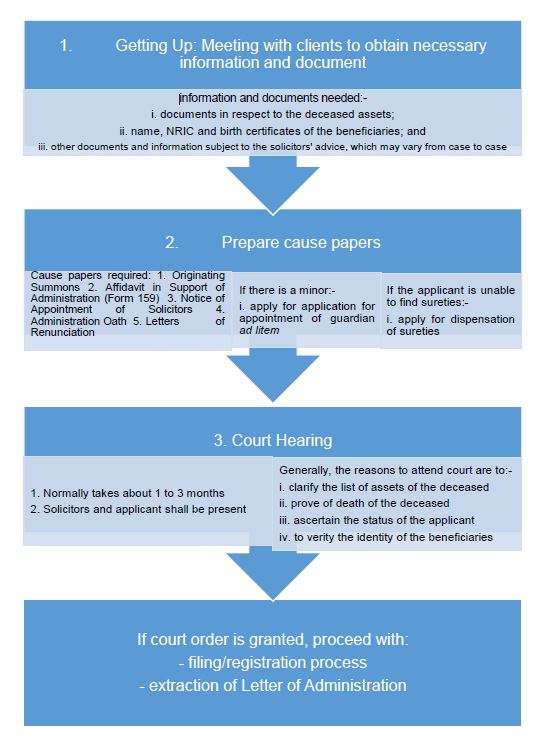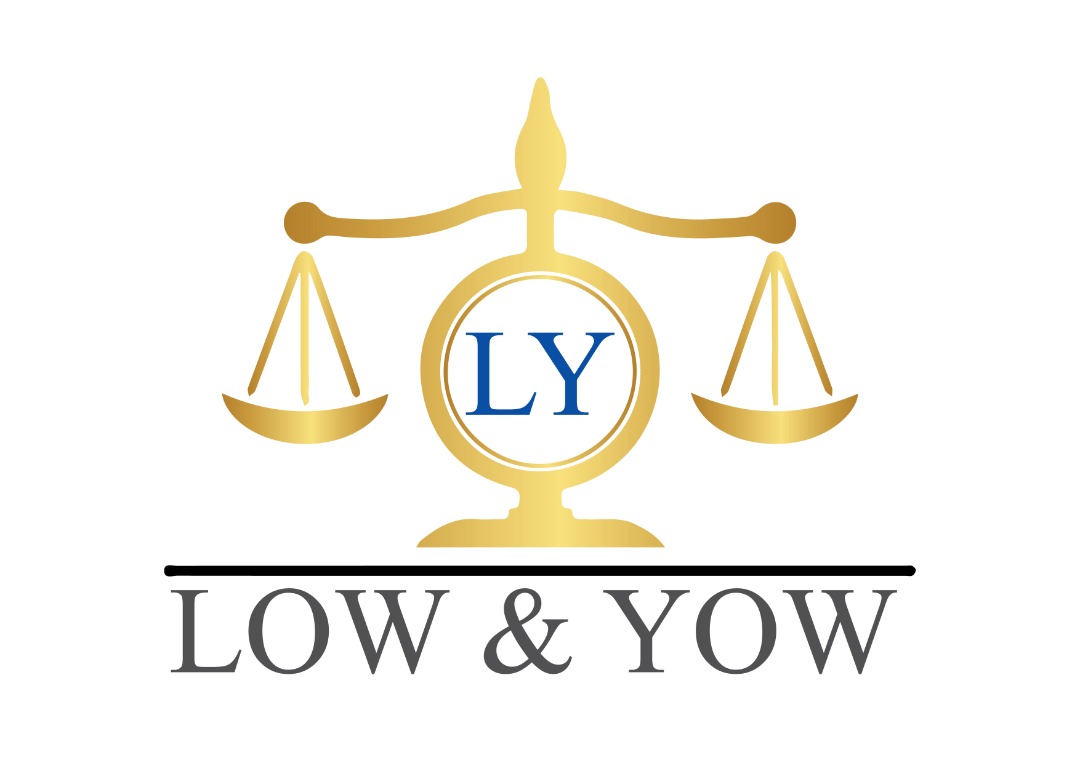Letter of Administration
The heart of this article rests on the question “If someone dies without a Will, what should the beneficiary do in order to distribute the deceased’s assets?”. The answer is, the beneficiary shall apply to the Court in order to obtain a “Letter of Administration”, with the followings 2 conditions:
- the total value of the deceased’s estate is worth more than RM2,000,000.00; or
- the deceased’s estate consisting wholly movable properties (without house and landed property).
- What is a Letter of Administration?
A Letter of Administration is an order issued by the High Court for the appointment of personal representative/administrator and guardian ad litem (if any). Personal representative is the person appointed by the High Court to deal with the deceased’s estate. This include to distribute the estate to the beneficiaries, to sell the deceased’s estate and to pay off any outstanding debts.
- Who will inherent the estate of the deceased?
Since the deceased dies without leaving a will, the distribution of the estate will be in accordance to Section 6 of the Distribution Act, 1958 and the summary of which are as follows.
| Spouse/Wife | Issue (means “(1) the deceased children; and
(2) descendants of the deceased children”) |
Parent | Entitlement | |
| (a) | Yes | No | No | Spouse entitled to 100% |
| (b) | Yes | No | Yes | 50% to Spouse
50% to Parent |
| (c) | No | Yes | No | 100% to Issue |
| (d) | No | No | Yes | 100% to Parent |
| (e) | Yes | Yes | No | 1/3 to Spouse
2/3 to Issue |
| (f) | No | Yes | Yes | 1/3 to Parent
2/3 to Issue |
- Can the beneficiary renounce his rights over the deceased’s estate?
Yes, the beneficiary may renounce and withdraws his rights over the deceased’s estate and seeks the Court to order his rights to be given to other beneficiaries.
- Is it expensive to obtain a Letter of Administration?
The costs to obtain a non-contentious Letter of Administration is generally inexpensive. We apologise that we are unable to publish the price due to the Bar Council Ruling, unless you contact us 011-1057 1611, emails (general@lychambers.com) or whatsapp.
- Who will the Court appoint as the Personal Representative/Administrator?
In relation to the appointment of the personal representative/ administrator, the Court is guided by Section 30 of the Probate and Administration Act, 1959 which in general, the most suitable person to be the administrator will be the beneficiaries of the deceased’s estate. In other words, the child, wife or parent of the deceased.
- Does the Personal Representative/Administrator need to attend court?
Yes, besides the solicitors, the person seeks to be the Personal Representative/Administrator shall attend Court once. Normally, the Court will ask a few questions on information about the family members of the deceased and whether the applicant agrees to be appointed as the Personal Representative/Administrator.
- Does the Administrator require to give security/administrative bond?
Under Section 35 of the Probate and Administration Act, 1959, if the total value of the deceased’s estate exceeds RM50,000.00, then security shall be given by bond with two sureties, in the amount equivalent to the total value of the deceased’s estate, without deduction of any debts due by the deceased.
However, the Court can dispense with the requirement on giving sureties and the amount of the bond. Normally, the application for the dispensation of such requirement can be done by way of affidavit stating, amongst the other reasons, the administrator had experienced difficulties in getting sureties.
- In general, what are the steps to obtain a Letter of Administration?

- How long will it take to obtain a Letter of Administration?
Normally, it takes around 1 to 3 months to obtain a Letter of Administration, depending on the hearing date fixed by the court.
- What will happen after a Letter of Administration has been obtained?
The solicitors will furnish to the appointed personal representative/administrator sufficient copies of the Letter of Administration issued by the Court.
You may use the Letter of Administration to withdraw the money in the deceased bank account, sell and transfer shares held under the deceased’s estate, dispose the deceased assets and to pay the deceased liabilities and etc.
For immovable, landed or non-landed properties, you may seek your solicitors’ guidance on the transfer of property. The reasons being each state in Malaysia has its own law and different property has different requirements in nature. As such, it will be prudent to seek your solicitors’ advice.
If you have any queries, please do not hesitate to contact us by email, calls or whatsapp.
